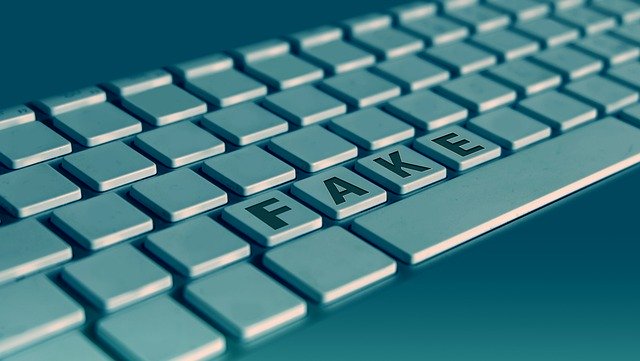
Image by Gerd Altmann from Pixabay
Most Americans now consider disinformation one of the most serious issues facing the country, new research reveals. Many also believe major corporations and public relations professionals should be responsible for combating the spread of disinformation.
Sixty-one percent of 2,200 people surveyed say they’re concerned about misinformation, according to the Institute for Public Relations. That’s more than illegal drug use or abuse (55%), crime (55%), gun violence (54%), and political partisanship (53%). Only infectious disease outbreaks (74%) and healthcare costs (72%) cause greater worries.
While many people use the terms “fake news” or “misinformation,” the IPR says it avoids the label “fake news” since it’s used inconsistently and has multiple interpretations. IPR differentiates between disinformation and misinformation: Disinformation is the deliberate spread of misleading or biased information while misinformation may be spread without the sender having harmful intentions.
Nearly three-out-of-four (74%) of respondents report seeing news or information that misrepresents reality at least once a week. Nearly half (49%) see it every day or almost every day.
Who is to Blame?
Most blame Facebook and politicians for spreading disinformation: 70% believe Facebook and politicians are at least “somewhat” responsible for spreading disinformation to the public, more so than fake social media accounts (65%). Twitter (57%) and YouTube (50%) are the other social media platforms deemed at least “somewhat” responsible.
While Americans say politicians and major social should be most responsible for containing disinformation, many (54%) say PR professionals should be “very responsible” for combatting disinformation, and 53% say large corporations and companies should be very responsible.
PR pros have many techniques to combat fake news and disinformation at their disposal, including media monitoring services that can monitor websites known to disseminate fake news.
Disinformation and fake news may become more significant problems as the US election approaches this fall.
Most Americans (84%) believe disinformation is a problem. Seventy-two percent believe disinformation is a threat to democracy, and 69% say it undermines the election process. Only six percent or fewer disagree with these statements.
Not surprisingly, Republicans and Democrats disagree about the trustworthiness of news sources and different groups. There’s one exception: Local news sources (broadcast and newspapers) are one of the least polarizing sources for information. Overall, 70% of overall respondents say they have at least “some trust” in local broadcast TV news and 60% trust local newspapers.
Trust in Local News
The finding might motivate public relations professionals to take a renewed interest in local news, through avenues such as Facebook’s Today In section, local TV news and talk shows, and other options.
The survey also reveals that disinformation has changed Americans news consumption. A surprising 31% claim they avoid watching or listening to the news because of the amount of disinformation. Additionally, 24% say they are more likely to read sources outside the U.S. because of the amount of disinformation in the U.S.
Previous research by the Plank Center for Leadership in Public Relations found that two out of 10 communications professionals in the U.S and Canada say their organizations have been affected by fake news, some more than once. Nearly 60% of the respondents call fake news, also sometimes called false news, a “serious threat,” yet few have systems or tools in place to spot or respond to fake news stories.
Bottom Line: Americans call the spread of disinformation the largest problem facing the country after infectious diseases and healthcare costs. They also say large companies and PR pros, in addition to politicians, social media networks and media outlets, have a role to play in combating the problem.
Schedule a Free Online Demo of the Glean.info Media Monitoring & Measurement Dashboard

Michael Kling is manager of public relations, marketing and social media at Glean.info, a media monitoring and measurement service that provides customized media monitoring and PR analytics solutions.



